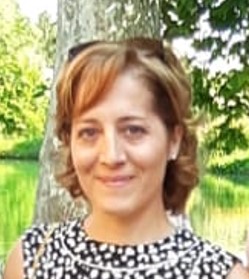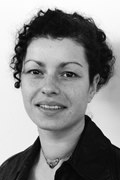Studying at the University of Verona
Here you can find information on the organisational aspects of the Programme, lecture timetables, learning activities and useful contact details for your time at the University, from enrolment to graduation.
Academic calendar
The academic calendar shows the deadlines and scheduled events that are relevant to students, teaching and technical-administrative staff of the University. Public holidays and University closures are also indicated. The academic year normally begins on 1 October each year and ends on 30 September of the following year.
Course calendar
The Academic Calendar sets out the degree programme lecture and exam timetables, as well as the relevant university closure dates..
| Period | From | To |
|---|---|---|
| Sem. 1A | Sep 24, 2018 | Nov 10, 2018 |
| Sem. 1B | Nov 19, 2018 | Jan 12, 2019 |
| Sem. 2A | Feb 18, 2019 | Mar 30, 2019 |
| Sem. 2B | Apr 8, 2019 | Jun 1, 2019 |
| Session | From | To |
|---|---|---|
| Sessione Invernale | Jan 14, 2019 | Feb 16, 2019 |
| Sessione Estiva (Gli esami sono sospesi durante la Sessione di laurea) | Jun 3, 2019 | Jul 27, 2019 |
| Sessione Autunnale | Aug 26, 2019 | Sep 21, 2019 |
| Session | From | To |
|---|---|---|
| Sessione Estiva | Jul 8, 2019 | Jul 13, 2019 |
| Sessione Autunnale | Nov 4, 2019 | Nov 9, 2019 |
| Sessione Invernale | Mar 30, 2020 | Apr 4, 2020 |
| Period | From | To |
|---|---|---|
| Festa di Ognissanti | Nov 1, 2018 | Nov 1, 2018 |
| Festa dell’Immacolata | Dec 8, 2018 | Dec 8, 2018 |
| Vacanze di Natale | Dec 22, 2018 | Jan 6, 2019 |
| Vacanze di Pasqua | Apr 19, 2019 | Apr 23, 2019 |
| Festa della liberazione | Apr 25, 2019 | Apr 25, 2019 |
| Festa del lavoro | May 1, 2019 | May 1, 2019 |
| Festa del Santo Patrono - S. Zeno | May 21, 2019 | May 21, 2019 |
| Vacanze Estive | Aug 12, 2019 | Aug 17, 2019 |
Exam calendar
Exam dates and rounds are managed by the relevant Humanistic Studies Teaching and Student Services Unit.
To view all the exam sessions available, please use the Exam dashboard on ESSE3.
If you forgot your login details or have problems logging in, please contact the relevant IT HelpDesk, or check the login details recovery web page.
Should you have any doubts or questions, please check the Enrollment FAQs
Academic staff
 domenico.lipari@univr.it; domenico.lipari@uniroma1.it
domenico.lipari@univr.it; domenico.lipari@uniroma1.it
 mariagrazia.ottaviani@univr.it
mariagrazia.ottaviani@univr.it
Study Plan
The Study Plan includes all modules, teaching and learning activities that each student will need to undertake during their time at the University.
Please select your Study Plan based on your enrollment year.
1° Year
| Modules | Credits | TAF | SSD |
|---|
2° Year activated in the A.Y. 2019/2020
| Modules | Credits | TAF | SSD |
|---|
1 module to be chosen among the following1 module to be chosen among the following3° Year activated in the A.Y. 2020/2021
| Modules | Credits | TAF | SSD |
|---|
1 module to be chosen among the following1 module to be chosen among the following1 module to be chosen among the following| Modules | Credits | TAF | SSD |
|---|
| Modules | Credits | TAF | SSD |
|---|
1 module to be chosen among the following1 module to be chosen among the following| Modules | Credits | TAF | SSD |
|---|
1 module to be chosen among the following1 module to be chosen among the following1 module to be chosen among the following| Modules | Credits | TAF | SSD |
|---|
Legend | Type of training activity (TTA)
TAF (Type of Educational Activity) All courses and activities are classified into different types of educational activities, indicated by a letter.
Psychobiology: theories and methods (2018/2019)
Teaching code
4S007355
Academic staff
Coordinator
Credits
6
Also offered in courses:
- Psychobiology of the course Bachelor's degree in Organisational Training
Language
Italian
Scientific Disciplinary Sector (SSD)
M-PSI/02 - PSYCHOBIOLOGY AND PHYSIOLOGICAL PSYCHOLOGY
Period
Sem. 1A dal Sep 24, 2018 al Nov 10, 2018.
Learning outcomes
General aims:
1) Knowing and undertanding the psychological theories that explain the fundamental processes related to the functioning and adaptation of the individual to the physical and social environment;
2) Applying the theories related to the functioning of individuals, groups and organizations to the understanding and analysis of learning phenomena and of personal and social change;
Specific objectives: The course aims at providing the theoretical and methodological framework necessary to understand the neurobiological correlates of human behavior and cognitive functions. Through the study of the main techniques and methods to investigate the neuronal activity (EEG, fMRI and TMS) and human behavior, the teaching also aims at providing the tools to evaluate and analyze the functional changes in the individual. At the end of the course, the student should prove the ability to link the main biological and neuronal mechanisms to the functional and adaptation processes of the individual to the physical and social environment.
Program
The program will touch the main issues addressed in Psychobiology, such as memory, learning, attention, perception, action, language. All of these cognitive functions will be dealt with a physiological point of view, by describing also the neural bases.
Introduction to Psychobiology:
a) Background
b) the principal methodological tools and techniques
Biological bases of behavior:
a) neurons and synapses
b) neuronal circuits
c) long-term potentiation
The cycle "perception-action"
a) from sensory stimuli to motor outputs
b) movements and actions
c) the neural basis
Attention:
a) endogenous and exogenous attention
b) experimental paradigms
c) the neural basis
Memory:
a) types of memory: short-term and long-term
b) experimental paradigms
c) the neural basis
The language:
a) the main theories on language
b) the neural basis
Learning:
a) theories of conditioning
b) experimental paradigms
c) neural mechanisms
The brain plasticity:
a) virtuous and harmful plasticity
b) functional reorganization
c) inter-hemispheric inhibition
d) neuromodulation
Emotions:
a) centra and peripheral theories
b) components of the emotions
c) biological bases
Teaching methods
Teaching consists of frontal lessons, for a total of 36 hours (6 CFUs). The first lesson will serve to guide students thought the course: information will be provided about the program, the lesson schedule, the reference textbooks, and the exams. In addition, for each topic discussed during the lessons, the reference will be provided to the chapters in which that topic is described. Additional materials will be provided on the e-learning platform of the University.
Throughout the academic year, a student reception service is available, with a weekly fixed schedule.
Suggested textbooks
- Gazzaniga MS, Ivry RB, Mangun GR. Neuroscienze Cognitive. Ed Zanichelli.
- The slides of the lectures will be available on the web page for the Course.
- Bibliographic references to scientific papers published in international journals will be provided.
| Author | Title | Publishing house | Year | ISBN | Notes |
|---|---|---|---|---|---|
| VITTORIO GIROTTO, MARCO ZORZI | Manuale di psicologia generale | Il Mulino | 2016 | ||
| Gazzaniga, Ivry, Mangun | Neuroscienze Cognitive (Edizione 2) | Zanichelli | 2015 |
Examination Methods
The exam consists for all students of one written test with 31 closed questions and multiple choice answers. The written test is intended to ensure knowledge and understanding of the topics addressed in the course and covers all the topics discussed during the lessons. The ranking of the written test will be expressed in scores of thirty.
Type D and Type F activities
Modules not yet included
Career prospects
Module/Programme news
News for students
There you will find information, resources and services useful during your time at the University (Student’s exam record, your study plan on ESSE3, Distance Learning courses, university email account, office forms, administrative procedures, etc.). You can log into MyUnivr with your GIA login details: only in this way will you be able to receive notification of all the notices from your teachers and your secretariat via email and soon also via the Univr app.
Gestione carriere
Linguistic training CLA
Student mentoring
Practical information for students
Documents
| Title | Info File |
|---|---|
|
|
pdf, it, 325 KB, 02/05/23 |
|
|
pdf, it, 212 KB, 02/05/23 |
|
|
pdf, it, 131 KB, 02/05/23 |
Graduation
Documents
| Title | Info File |
|---|---|
|
|
pdf, it, 99 KB, 13/10/23 |
|
|
pdf, it, 101 KB, 10/04/24 |
|
|
pdf, it, 296 KB, 28/07/22 |
|
|
pdf, it, 142 KB, 28/07/22 |
|
|
octet-stream, it, 24 KB, 28/07/22 |
List of theses and work experience proposals
Stage e Tirocini
Le attività che ci si aspetta il/la tirocinante curriculare in Scienze psicologiche per la formazione svolga presso gli enti che lo/la ospitano riguardano principalmente attività di affiancamento nei seguenti ambiti:
- Formazione, sviluppo, innovazione e gestione delle risorse umane;
- Orientamento scolastico e professionale;
- Ricerca, selezione e valutazione psicologica del personale.
Sono ritenuti ambiti adeguati le diverse agenzie per il lavoro, le agenzie di formazione, le agenzie di orientamento, le società di consulenza e tutti gli enti, le associazioni, le aziende, le imprese e, in generale, le organizzazioni che al loro interno operano attività di ricerca, selezione e valutazione psicologica del personale, attività di formazione, sviluppo, innovazione e gestione delle risorse umane e attività di orientamento scolastico e professionale. Anche enti di ricerca e Università dove si conducono studi e indagini su questi temi sono ambiti ritenuti adeguati.
Lo/la studente/essa sarà seguito/a da un tutor accademico e da un tutor aziendale. Alle attività di tirocinio sono attribuiti 9 CFU (pari a 225 ore).
Il tutor aziendale deve essere un laureato in psicologia anche non iscritto all’albo.
Linee Guida per lo Svolgimento dei Tirocini Curriculari
- Tutte le informazioni in merito agli stage per futuri studenti sono disponibili alla pagina Stage e tirocini.
- Tutte le informazioni in merito agli stage per studenti iscritti sono pubblicate in MyUnivr - come fare per - stage e tirocini.
- Tutte le informazioni in merito agli stage per le aziende sono disponili alla pagina Stage e tirocini per azienze.

 0458028369
0458028369







